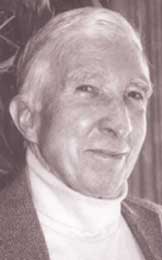|
|
Villages
By John Updike,
Knopf, $ 19.75
Villages is Updike?s 8?. It is a tenderly ruthless sexual Bildungsroman, which begins in the present and then moves backwards and forwards in time to become an account of one man?s existential journey. The story of Owen Mackenzie?s life unfolds, through dreams, memories, fantasies and evocations of place, from boyhood to senility, from first sex to final dotage, from the only child?s self-absorption to the ?tender regard? of old age, from eros to caritas. And through this sustained bravura performance in prose, moves an entire procession of women ? grandmother, mother, two wives, daughters, mistresses, flings and fantasies. Each is conjured up in her own ?climate? with an unabashed connoisseurship that enlists the great masterpieces of erotic art for its own human and aesthetic validation: Manet?s Olympia, Goya?s Naked Maja, Ingres?s The Turkish Bath.
There are two parallel histories woven into this histoire, with uneven success. First, the history of American suburbia from just before World War II (Owen was born in 1933) to the present. The ?villages? of the title ? Willow, Middle Falls, Haskells Crossing ? make up the ?respectable thick weave of citizenship and work and parenthood? that protects us, in the novel?s closing words, ?from the darkness without and the darkness within?. Second, the occasionally tedious history of computers, from the first giant IBMs to the advent of Apple and the Internet.
Owen graduates from MIT to become the creator of DigitEyes, a visuals software. The inevitable ?obsolescing? of DigitEyes is an important thread in Updike?s story of progress, change, migration and natural selection in the novel. But Owen wards off suburban nerdhood with the perversity of his intelligence, focused and invigorated by ?other people?s unhappiness?. It is inseparable from his appetite for ?restless, wry and lovable? women, a precious ?imbalance? in his nature that would keep him, and Updike?s novel, always ?on the edge of the doom that waits, bottomless, where the skin of the humdrum tears?.
As always, Updike?s great theme is that ?bi-form creature?, the couple ? husband and wife losing and finding themselves, or other people, in the intricately choreographed wilderness of adultery: ?The unfaithful man and woman meet for a plain purpose, dangerous and scandalous, with the blood pressure up and the pupils enlarged and the love-flush already reddening the skin: is there not a praiseworthy economy in this, as opposed to sex spread thin through the interminable mutual exposure of a marriage?? But because this is also the story of a life, ?the muck and the muddle? of infidelity are placed against the larger movements of time, as the ?great harvester? looks on or strikes, giving to lust remembered in old age a dream-like quality, even investing it with a private eschatology.
Owen?s final vision of human sexuality opens out from a rueful but entranced sense of unworthiness ? ?This guilty bliss is life??How little men deserve the beauty and mercy of women!? ? to a cosmic biologism that takes Villages close to the ecologies of Darwin and Malinowski, turning its cocktail parties and Easter services alike into pagan rites of spring: ?These hair-adorned nether parts, closely fitted into the sites of urination and defecation, were seats of being, ugly and odorous in external contemplation but in sensation exquisite. This high value was altogether inward and had to be taken by others on faith. The daze of sexual excitement bestowed this faith but left Owen uncertain as to why...women put up with it. So much risk, so much potential for disgrace and abasement. Abasement was part of the bliss, perhaps: being lowered like a bucket into the black well of biology while knowing that the rope was still attached, the daylight of society waiting above.?











